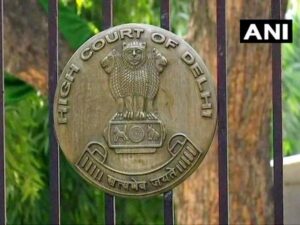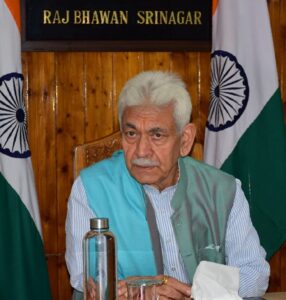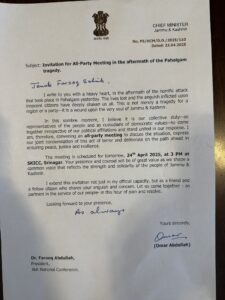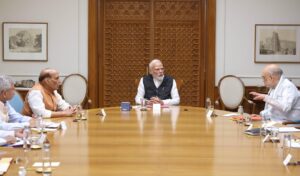PIL filed by Bilkis Bano challenging remission to convicts maintainable: SC
New Delhi, Jan 8 (PTI) The Supreme Court on Monday held as maintainable the PIL filed by Bilkis Bano, who was gang-raped while seven of her family members were killed during the 2002 communal riots in Gujarat, against the state government’s decision to grant remission to 11 convicts in the case.
The apex court said Article 32 of the Constitution is a part of Part-3 of the Constitution of India which deals with fundamental rights and the right to file a petition under the article is also a fundamental right.
“In the instant case, the petitioner – Bilkis Bano has filed her writ petition under Article 32 of the Constitution in order to enforce her Fundamental Rights under Article 21 of the Constitution which speaks of right to life and liberty and Article 14 which deals with right to equality and equal protection of the laws.
“The object and purpose of Article 32 of the Constitution which is also recognised to be the ‘soul of the Constitution’ and which is a Fundamental Right in itself is for the enforcement of other Fundamental Rights in Part-III of the Constitution. We think that the aforesaid constitutional remedy is also to enforce the goals enshrined in the Preamble of the Constitution, which speak of justice, liberty, equality and fraternity,” a bench comprising Justices B V Nagarathna and Ujjal Bhuyan said.
Accusing the Gujarat government of abusing its power, the Supreme Court on Monday quashed the remission granted to the 11 men convicted in the case. It also said Gujarat’s action amounted to “usurpation of power” of the Maharashtra government.
The top court said keeping in mind the expanded notion of access to justice, which also includes speedy remedy, the petition filed by Bilkis Bano cannot be dismissed on the ground of availability of an alternative remedy under Article 226 (to approach HC) of the Constitution or on the ground of its maintainability under Article 32 of the Constitution before this Court.
According to Article 32, “It is a fundamental right, which states that individuals have the right to approach the Supreme Court (SC) seeking enforcement of other fundamental rights recognised by the Constitution.”
The top court said there is another stronger reason as to why Bilkis Bano approached this Court by filing a petition under Article 32 of the Constitution rather than invoking Article 226 of the Constitution before the high court.
“That is because earlier, one of the respondents, namely, respondent No.3 Radheshyam Bhagwandas Shah had preferred writ petition invoking Article 32 of the Constitution before this Court by seeking a direction to the State of Gujarat to consider his case for remission under the Policy of 1992.
“This Court issued a categorical direction to that effect. In fact, the respondent-State has understood the said direction as if it was a command or a direction to grant remission within a period of two months. But, before this court in the said proceedings, one of the serious contentions raised by the State of Gujarat was that it was not the appropriate Government to grant remission which contention was negatived by the order dated May 13, 2022,” the bench said.
Another bench of the apex court had on May 13, 2022 asked the Gujarat government to consider the remission plea of Shah. On Monday, the top court nullified that order, saying it was obtained by “playing fraud on the court” and by suppressing material facts.
The top court said this was one of the grounds raised by Bano to assail the orders of remission granted to convicts.
“That being so, the High Court of Gujarat would not have been in a position to entertain the aforesaid contention in view of the categorical direction issued by this court on May 13, 2022.
“In the teeth of the aforesaid order of this Court, the contention regarding the State of Gujarat not being the competent State to consider the validity of the orders of remission in a petition filed under Article 226 of the Constitution, particularly, when the question of competency was raised, could not have been dealt with by the Gujarat High Court on the principle of judicial propriety,” the bench said.
The apex court said, therefore, Bilkis Bano rightly approached it challenging the orders of remission.
“Thus, we hold that Writ Petition filed under Article 32 of the Constitution is clearly maintainable,” it said.
Besides the petition filed by Bilkis Bano contesting the remission, several other PILs, including one by CPI(M) leader Subhashini Ali, independent journalist Revati Laul and former vice-chancellor of Lucknow University Roop Rekha Verma, challenged the relief. TMC leader Mahua Moitra also filed a PIL against the remission and the premature release of the convicts.
Bilkis Bano was only 21-years-old and five months pregnant when she was gang-raped while fleeing the horror of the communal riots. Her three-year-old daughter was among the seven family members killed in the riots.
All 11 convicts in the case were granted remission by the Gujarat government and released on August 15, 2022.






